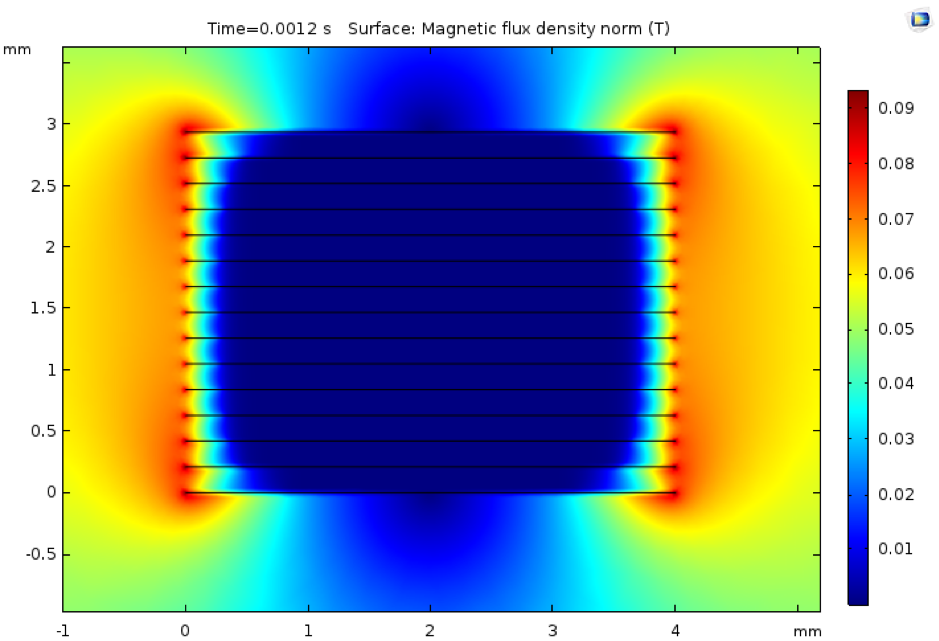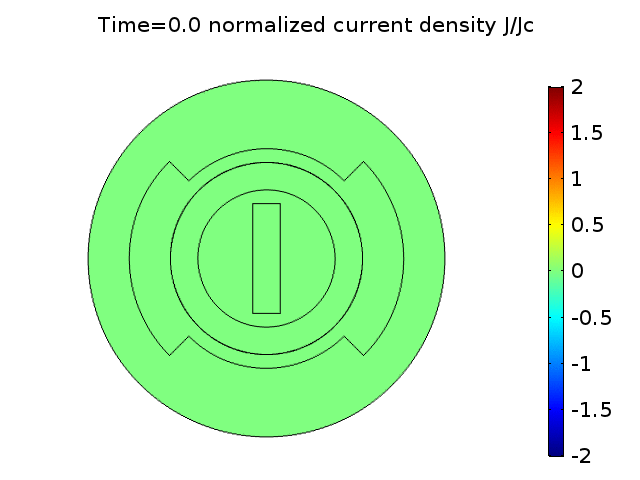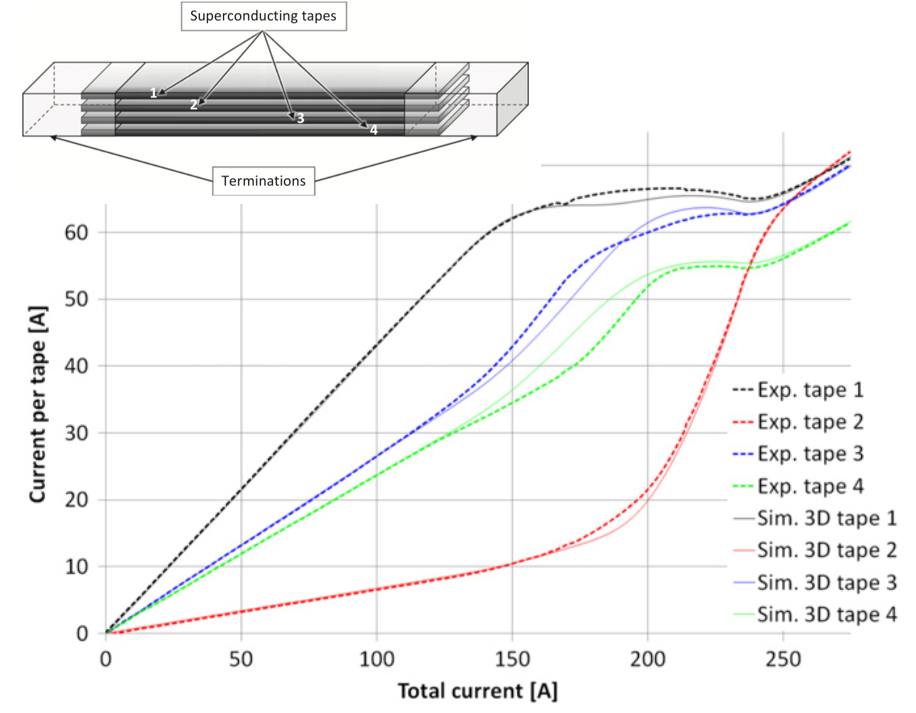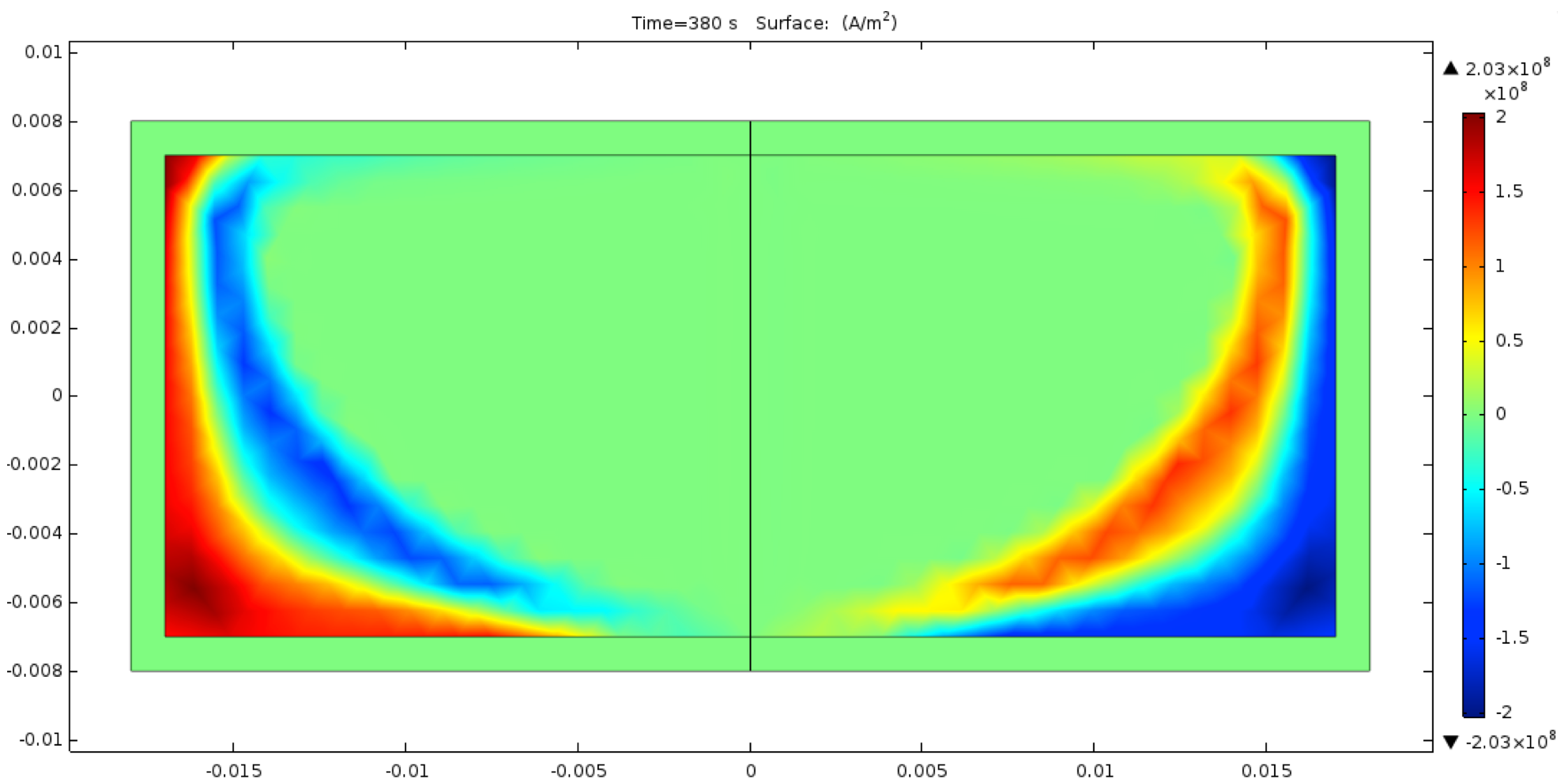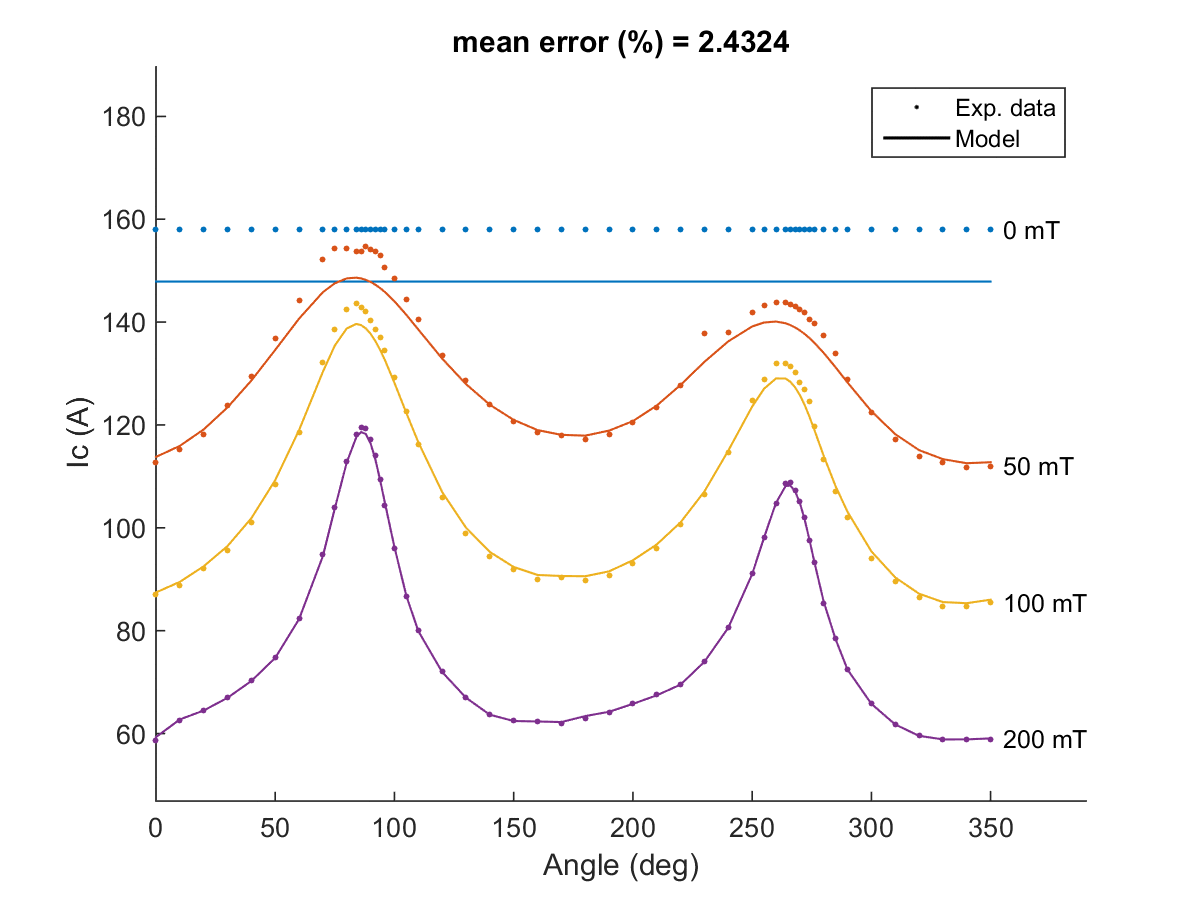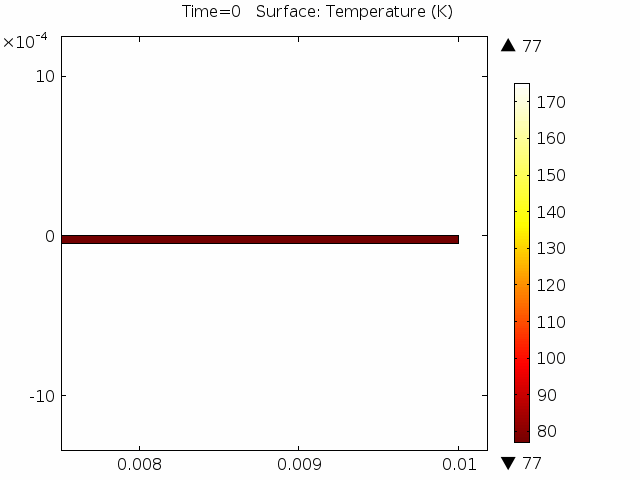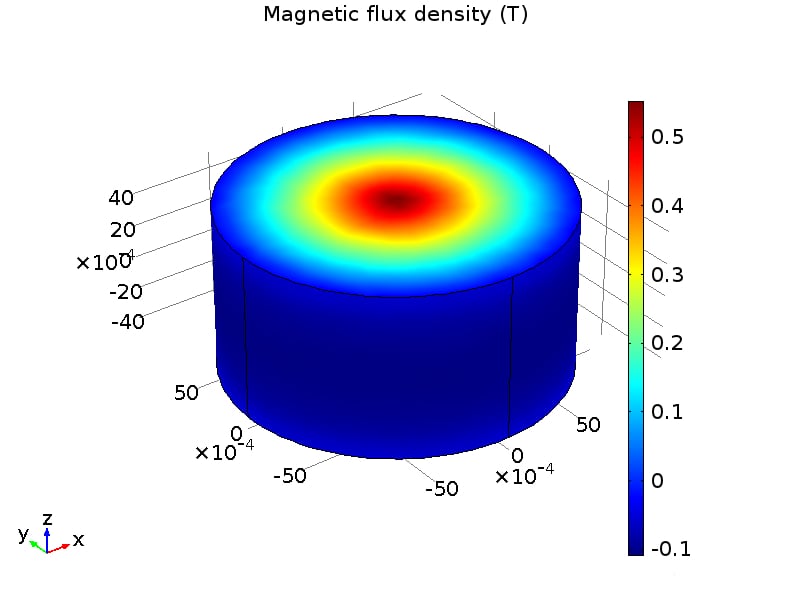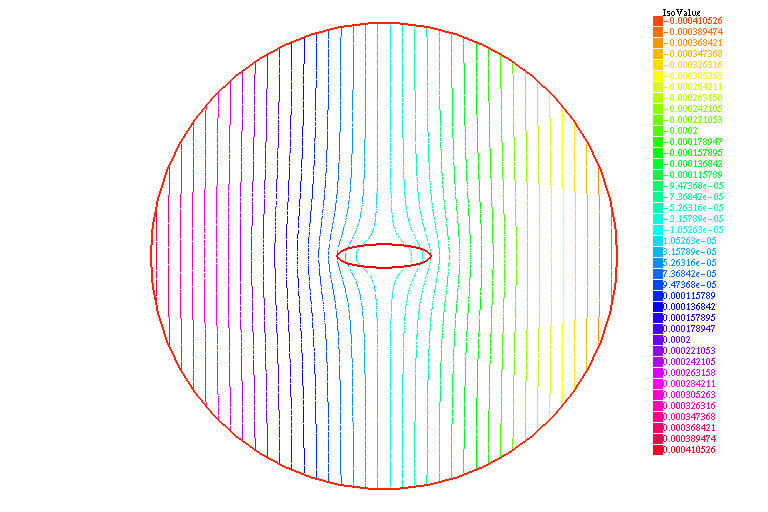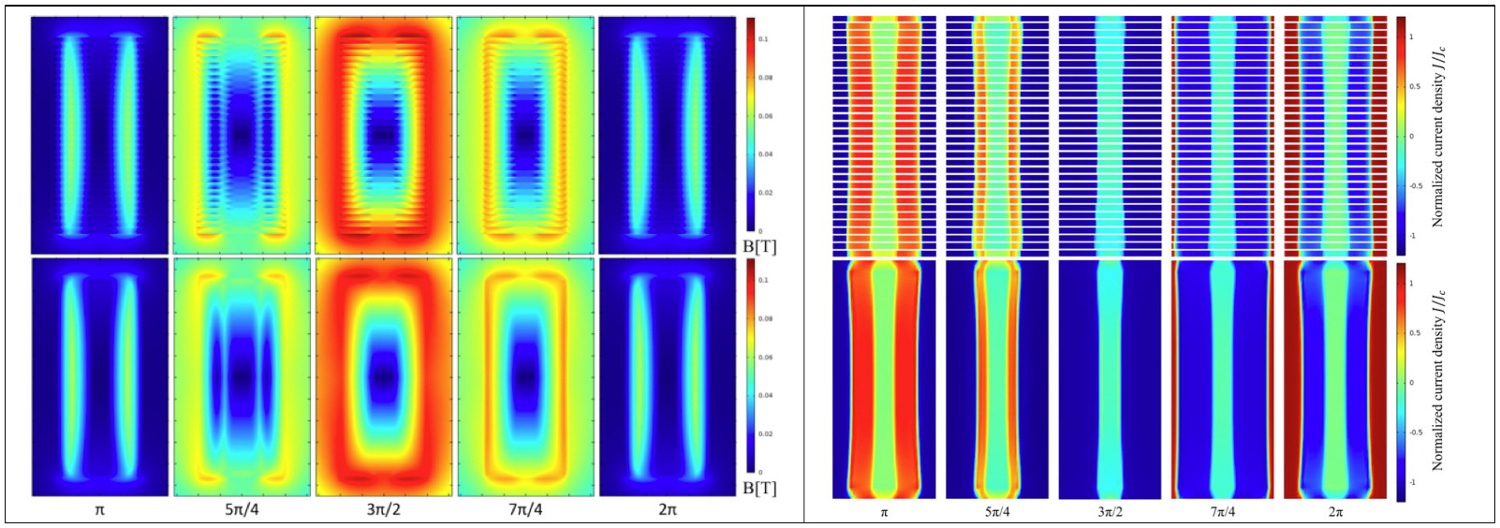T-A formulation for modelling 2G HTS stacks
by administrator on Mar 15, 2024 1:24:41 PM
Impressive work Nothing else matters Impressive work Nothing else matters The model shows how to use the thin strip approximation for the superconducting coated conductors to speed up calculation. The model simulates the magnetisation of a 2G HTS stack. The T formulation is used for m …
Mixed A- and H- formulation for modeling electrical machines with superconducting windings
by administrator on Mar 15, 2024 1:20:57 PM
The model uses the H-formulation for the superconducting windings and the A-formulation for the non-superconducting parts. Two important lines are defined: the “tramodel” lines, which separates the two formulations, and the “rotation” line, which separates the fixed and rotating parts …
Modeling and simulation of termination resistances in superconducting cables
by administrator on Mar 15, 2024 1:13:58 PM
The models presented here are used to simulate termination resistances which are largely responsible for the uneven distribution of currents in superconducting cables [1]. For this purpose, four different models are presented. The first is a 0D stationary model, where time enters as a …
Superconducting magnetic bearing composed by a permanent magnet and bulk HTS sample
by administrator on Mar 15, 2024 1:11:12 PM
In the considered examples, the HTS sample is either a bulk superconductor or stacks of 2G wires. In the second case, the 2G stack was homogenized in order to speed up the solution. The movement between the HTS and the permanent magnet is avoided in the model by restricting the simula …
Parameter-free method to extract the Jc(B,θ) field-dependence from in-field current–voltage characteristics of HTS tapes
by administrator on Mar 15, 2024 1:00:34 PM
The method presented here allows computing the critical current density (Jc) of superconducting materials from its in-field experimentally measured critical current (Ic). This is particularly important for applications like HTS cables for power transmission and fault current limiters, …
2-D electro-thermal model for simulating non-uniform quench in 2G HTS coated conductors
by administrator on Mar 15, 2024 12:57:24 PM
The model calculates the time evolution of the electric potential and the temperature in a 2G HTS CC when a transport current is applied in presence of a low Jc region (defect) in the tape. The heat generated at the defect location creates a normal zone that propagates along the tape. …
Self-consistent model to estimate the critical current of superconducting devices
by administrator on Mar 15, 2024 12:47:00 PM
This model was shared by V. Zermeno, Karlsruhe Institute of Technology. The model presented here is used to estimate the critical current of superconducting devices. Its implementation is very simple either using finite-element-based or general numerical analysis programs. The model r …
2-D axisymmetric and 3-D models for magnetization of superconducting bulks
by administrator on Mar 15, 2024 12:42:20 PM
Magnetic vector potential Current density distribution This model was shared by M. Ainslie, University of Cambridge. The first model is for a 2D axisymmetric bulk with zero field cooling (ZFC) magnetization. Here, the external magnetizing field is applied along the z axis – perpendicu …
2-D Campbell’s model to estimate magnetization losses in a wire in the critical state
by administrator on Mar 15, 2024 12:21:44 PM
Magnetic vector potential Current density distribution This model was shared by E. Rizzo. The model calculates the penetration of the magnetic field in the cross-section of a superconducting wire in the critical state subjected to a transverse magnetic field.
2-D homogeneous model to estimate AC losses in coated conductor stacks and coils
by administrator on Mar 14, 2024 3:41:29 PM
This model was shared by V. Zermeno, Karlsruhe Institute of Technology. The model uses a homogenization technique to calculate the current distribution inside the superconducting layers of a HTS stack where each tape carries the same net current as it would be the case in a coil. The …
